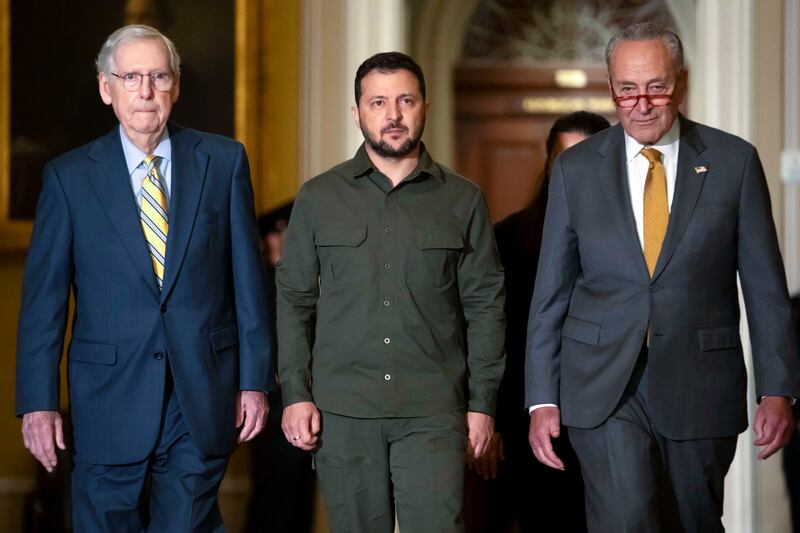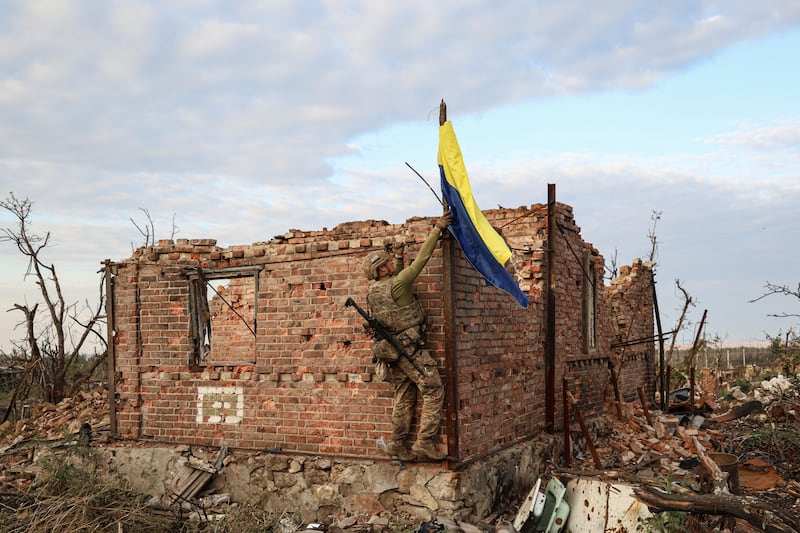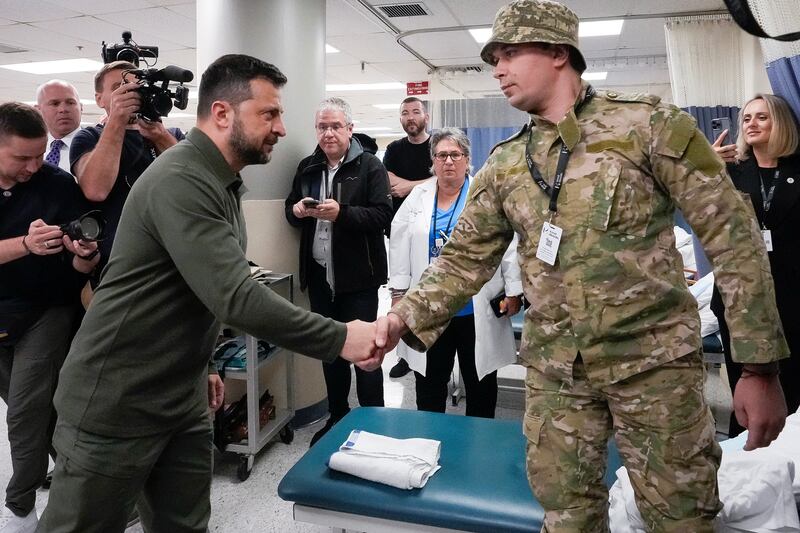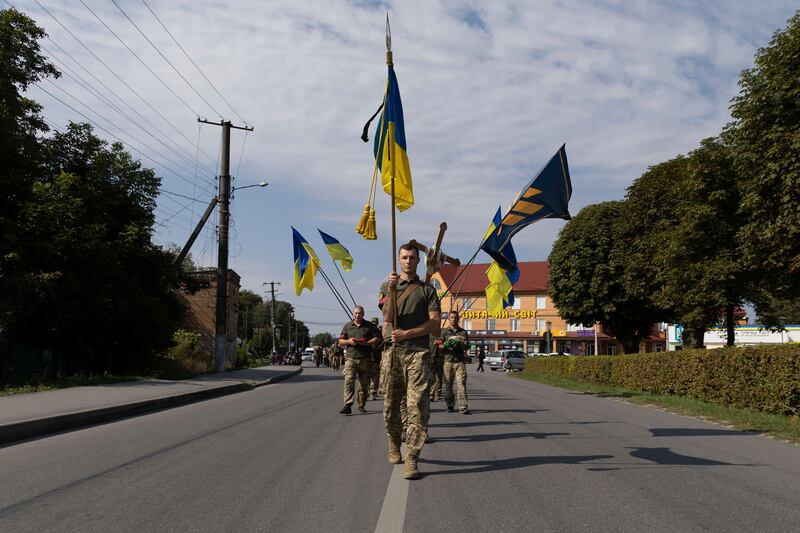Ukrainian President Volodymyr Zelenskyy was unable to address legislators on Tuesday for an unknown reason as the White House continues to urge Congress to approve a $105 billion request for funds for Kyiv, Israel and other security needs.
Senate majority leader Chuck Schumer announced that Mr Zelenskyy's online appearance could not take place due to an unexplained emergency.
"Something came up at the last minute," Mr Schumer told reporters.
He said President Joe Biden's administration had invited Mr Zelenskyy to speak so senators “could hear directly from him precisely what's at stake”.
US security officials will also address the chamber.
The White House on Monday sent an urgent warning of the need to approve military and economic assistance to Ukraine.
Mr Zelenskyy has addressed Congress on several occasions, in person and by video link, since the Russian invasion began in February last year.
In September, he visited President Joe Biden at the White House but his request to address Congress was rejected by the Republican leadership, according to reports.
In a letter to House and Senate leaders, White House director of the Office of Management and Budget, Shalanda Young, on Monday urged Congress to approve a supplemental funding request submitted by Mr Biden in October.
“I want to be clear: without congressional action, by the end of the year we will run out of resources to procure more weapons and equipment for Ukraine and to provide equipment from US military stocks,” Ms Young said in the letter.
She said a lack of funding would “kneecap” Ukraine's efforts on the battlefield.
“We are out of money – and nearly out of time,” Ms Young wrote.
Congress has already sent $111 billion to Ukraine, including $67 billion in military funding.
But finance for Ukraine is becoming an increasingly divisive issue among Republicans.
Last month, in response to the Biden administration's $105 billion request, House Republicans put forward their own legislation that would send $14 billion to Israel – and nothing to Ukraine.
House Speaker Mike Johnson told fellow Republicans that sweeping changes to US border policy would be their “hill to die on” in negotiations over Mr Biden’s package for wars abroad and other security needs.
“The battle is for the border," Mr Johnson told a news conference. “We do that first as a top priority, and we’ll take care of these other obligations.”
Russia's invasion drew international outrage and military funding from the US and EU flowed into Ukraine.
Neighbouring countries opened their doors to Ukrainian refugees as Nato sent weapons and funds to Kyiv as it worked to push back Russian forces.
But despite far-reaching international sanctions, a sharp economic downturn and a reportedly high number of casualties, Russia has shown no signs of retreat.
After an underwhelming summer counter-offensive and the start of the Israel-Gaza war, interest in Ukraine's success seems to have waned.
Mr Schumer appeared to be open to negotiating with House Republicans on Tuesday afternoon.
"I will offer the Republicans the first amendment if we move forward, on border, on immigration, and they can put whatever they want," he told reporters.

















